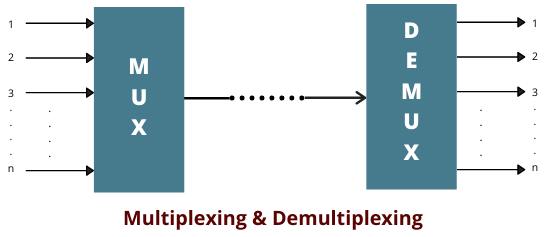Multiplexing is a technique in which multiple signals are combined into a composite single for transmission through a common channel. To transmit multiple signals on a single channel, the signals must be kept apart so that they do not interfere with each other, hence It can be separated easily at the receiver end.

Types of Multiplexing
There are basically two types of multiplexing –
- Frequency division multiplexing (FDM)
- Time-division multiplexing (TDM)
Frequency Division Multiplexing (FDM)
Frequency division multiplexing (FDM) is a type of multiplexing that means combining more than one signal over a single medium. In FDM, combines several frequencies signals for concurrent transmission.
In FDM, the bandwidth of a signal is divided into several frequency bands, so that they do not overlap
At the receiver end of the channel of the modulated signal are separated by a bandpass filter and then demodulated/demultiplexing.
Example of frequency-division multiplexing
Radio, Television broadcasting, Telemetry, communication network, etc.
